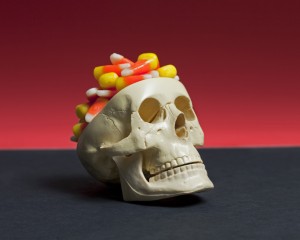
Timothy Masters / Dollar Photo Club
Despite the mounting evidence on just how bad they are for us, artificial sweeteners remain on the market in just about everything we consume.
Think that just because you avoid diet sodas you’re safe? Bought any chewing gum lately? Use any protein workout drinks? Did your doctor recommend Medifast shakes? How about pretty much anything advertised as “no sugar added?” You get the idea. Unless you go out of your way to avoid them, you are probably taking in artificial sweeteners in a variety of products on pretty much a daily basis.
I do honestly believe that society is finally starting to understand that these compounds are not all they are cracked up to be. The heavy hitters involved are aspartame (Nutrisweet), sucralose (Splenda) and acesulfame postassium (acesulfame K). There are other natural sweeteners that are better alternatives, although I still recommend working towards using any type of added sweetener as little as possible. These natural sweeteners include stevia, monk fruit and the sugar alcohols (xylitol, erythritol, sorbitol).
Artificial sweeteners first came on the market in an attempt to help reduce overall caloric consumption and stem off the tide of obesity and diabetes. It all sounded like a good idea–how could it not work??
Well, it didn’t (and hasn’t). Every current study looking at the effects of artificial sweeteners finds that they contribute to diabetes and obesity. Quite the opposite of the intention.
So how did this happen when it seems to make sense on the front end?
Here are some clues:
- Artificial sweeteners alter the gut bacteria (microbiome) in mice. Given the strong links between the microbiome and obesity, any uncontrolled alterations in the balance could spell disaster.
- Artificial sweeteners alter our perception of taste, especially in children, leading us to look for more and more “sweet” in our dietary choices.
- Sucralose has been shown to lower levels of brown fat, the wondrous type of fat that acts as a calorie-burner in our bodies.
With just this alone, it should be enough for you to swear off artificial sweeteners permanently. But, just in case it isn’t, there’s one very interesting finding that you really need to know. And it deals heavily with the choices that we make when it comes to our health and life.
Anytime we have to make a “deeper” decision on something, there is a reserve that we tap into. This is opposed to run-of-the-mill quick decisions such as deciding whether or not to stay in the middle lane of traffic or the center lane.
This reserve in our brain requires energy, most typically in the form of sugar. As we make decisions throughout the day, that energy gets depleted. This is exactly why you should focus your attentions on things that are more important immediately after breakfast, lunch or dinner.
In this particular study, researchers used two types of lemonade to see if participants could avoid the depletion of decision making (referred to as “ego” in the context of the study). One had sugar, the other the all-evil Splenda.
The exact test used was the Stroop test, which involves a deeper level of thinking to make sure you get the answers correct.
As time went on in the normal lemonade group, there was no breakdown of ego as the participants performed the Stroop test. These findings suggest that glucose is an important factor in making sure we retain the ability to make good decisions, even after our brains have been given the run-around.
But what about the Splenda lemonade group? There was no protection from the artificial crap.
What does this mean? It potentially means that the use of artificial sweeteners in our daily lives are depriving our brains of what we need to make good decisions throughout the day. These decisions could make for poor choices, like whether or not to drive home or go straight to the gym. Or whether or not to make a healthy dinner or stop for fast food on the way home instead (AND skip the gym…).
You get the point.
